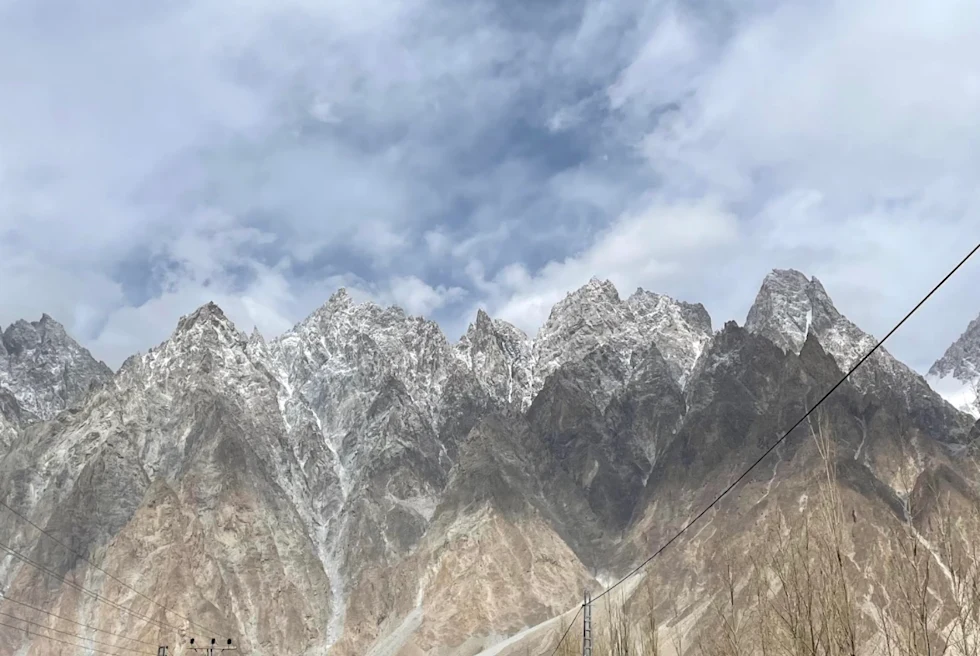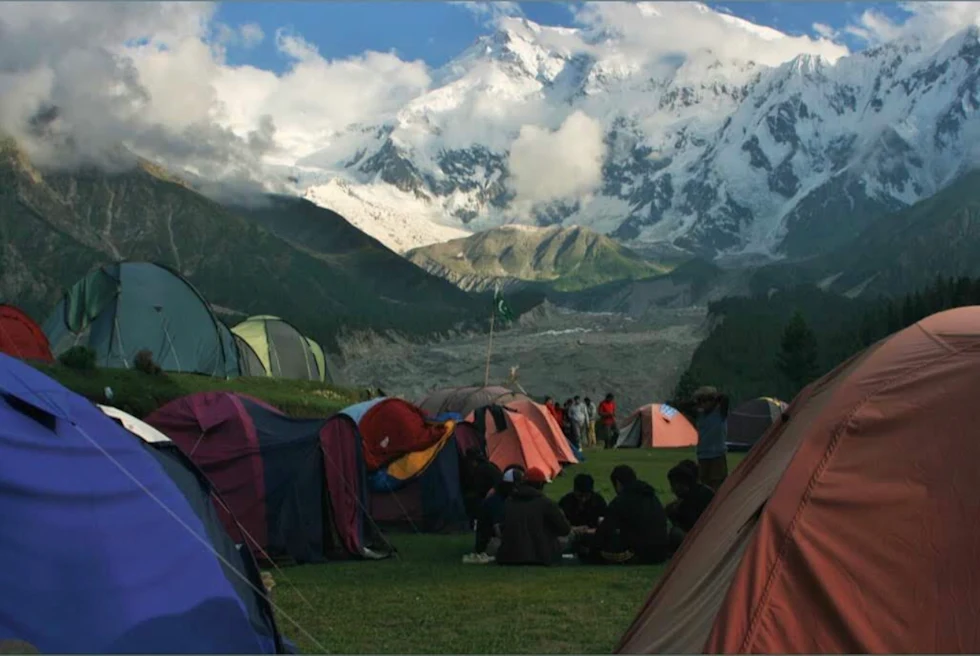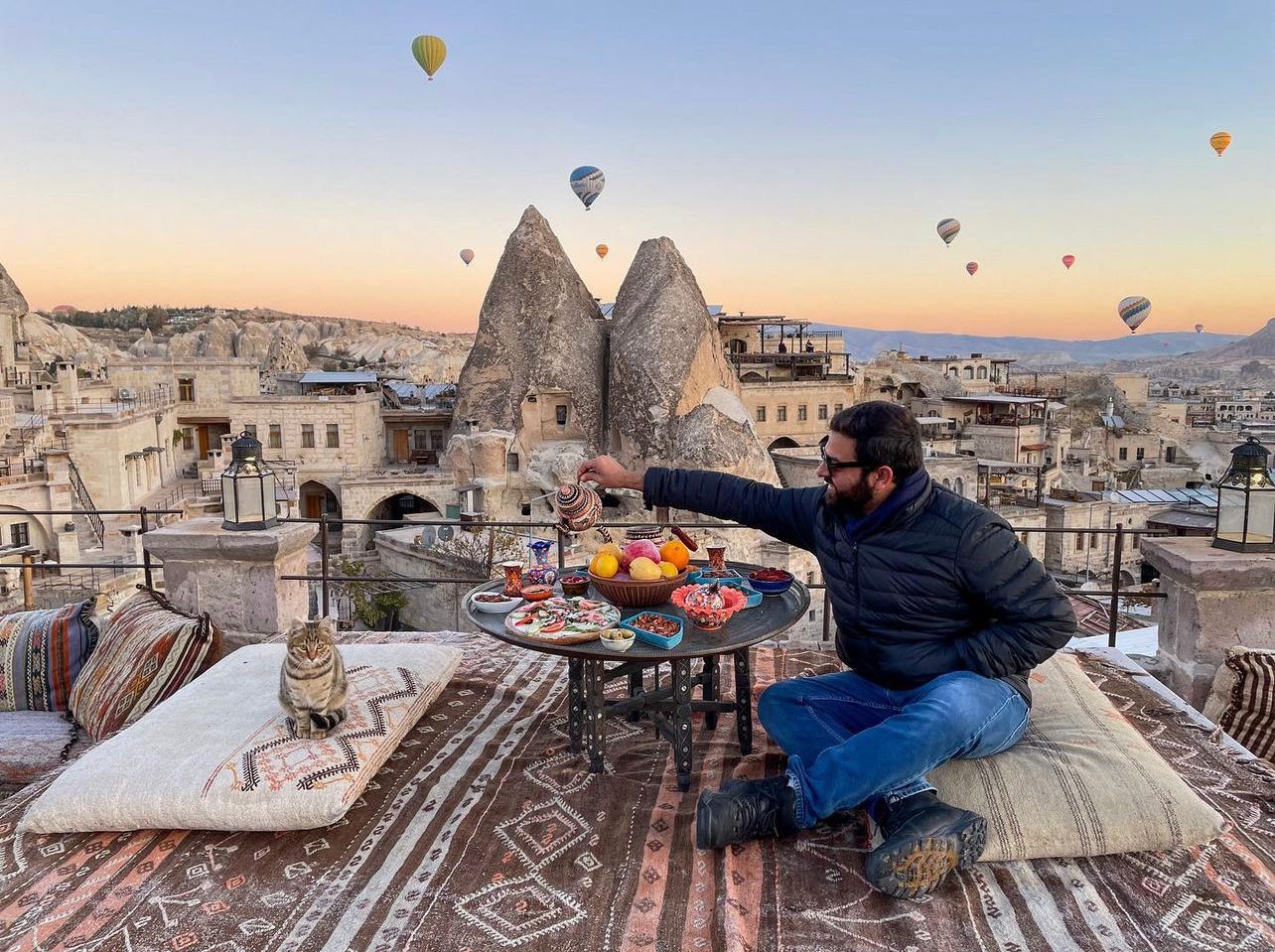
Curator’s statement
Northern Pakistan is a destination not too frequented which is why it's one of the most beautiful places on our planet. 50 million years ago, this is where continents collided to create over a thousand 7000m+ peaks as well as 5 of the 14 8000m+ behemoths. Here you can find the most fresh water glaciers outside of Antartica, the Deosai National Park which is the second highest plateau in the world and even the highest land border crossing in the world with China. If you're looking to disconnect from reality, let Pakistan's beauty mesmerize you, while you take a break from everything else and actually live life.
The Fora Difference
Book with Isam to access exclusive perks and experiences on your trip.
Killer perks
Free upgrades, spa credits and more—we got you
Personalized recs
Customized travel planning for your style
Insider knowledge
Expert advice from people who’ve actually been there
Where to stay in Pakistan
Unlock perks by contacting Isam to book your trip.
Things to do in Pakistan

The Hunza Valley: The Hunza Valley is a popular tourist destination, located in the Gilgit-Baltistan region of Pakistan. The valley is home to the Altit and Baltit Forts, which were built in the 8th and 16th centuries. Additionally, the valley is home to Attabad Lake, which was created by a landslide in 2010.
Fairy Meadows: Fairy Meadows is a beautiful meadow located in the Karakoram Mountains, near the basecamp of Nanga Parbat. The meadows are surrounded by snow-capped mountains and offer stunning views of the surrounding area. Here you'll drive along the 2nd most dangerous road in the world, single lanes and huge drops, only the most skillful can drive here. It's all worth it for the views.
Passu: Passu is a small village located in the Hunza Valley. The village is known for its stunning views of the Passu Cones, which are a group of 3 peaks that resemble a snow-capped pyramid. Here you'll be close to the famous 'Husseini Suspension Bridge' Instagram galore here.
Skardu: Skardu is a city located in the Gilgit-Baltistan region of Pakistan. The city is surrounded by the Karakoram Mountains, including K2, the second-highest mountain in the world. Skardu is also home to the Katpana Desert, which is one of the highest deserts in the world. Never tried glamping? Katpana desert might be the best place to start.
The Deosai Plateau: The Deosai Plateau is a high-altitude plateau located in the Gilgit-Baltistan region of Pakistan. The plateau is the second-highest plateau in the world, after the Tibetan Plateau. The Deosai Plateau is home to a variety of wildlife, including the Himalayan brown bear, the snow leopard, and the ibex. Great place to go camping or for a drive through safari trying to catch the exotic wildlife.
Chitral: Chitral is a district located in the Khyber Pakhtunkhwa province of Pakistan. The district is surrounded by the Hindu Kush mountain range and is home to a number of glaciers, including the Batura Glacier, the world's longest glacier outside of the polar regions. Chitral is also home to the Kalash Valley, home of the Kalash people, an ancient tribe with a unique culture and religion. Close to here you'll also find the Shandur Polo Festival which takes place once a year, the highest polo ground in the world.
Naran-Kaghan Valley: The Naran-Kaghan Valley is a beautiful valley located in the Khyber Pakhtunkhwa province of Pakistan. The valley is home to the Lulusar Lake, which is surrounded by forests, and the Saif-ul-Mulk Lake, which is located at the bottom of the mountains and has views similar to Moraine Lake in Banff.
Places to eat & drink in Pakistan

The Yak Grill in Passu. It goes without saying to get the Yak burger here. Delicious and unique.
Osho Thang in Minapin near the Hunza Valley. Go with anything the chef recommends, you can't go wrong.
Cafe De Hunza in the Hunza Valley. Everything is good but my favorite is the walnut cake. It's a must-try.

Travel Advisor
Isam Tabani

Get in touch with Isam
Did you like this guide? Reach out to customize and book your own experience. Or, just to chat about travel in general.
You can expect a response from Isam within 1–2 business days. You’ll also be subscribed to our traveler newsletter (you can unsubscribe at any time).
This guide is part of our ongoing series on travel to Pakistan.